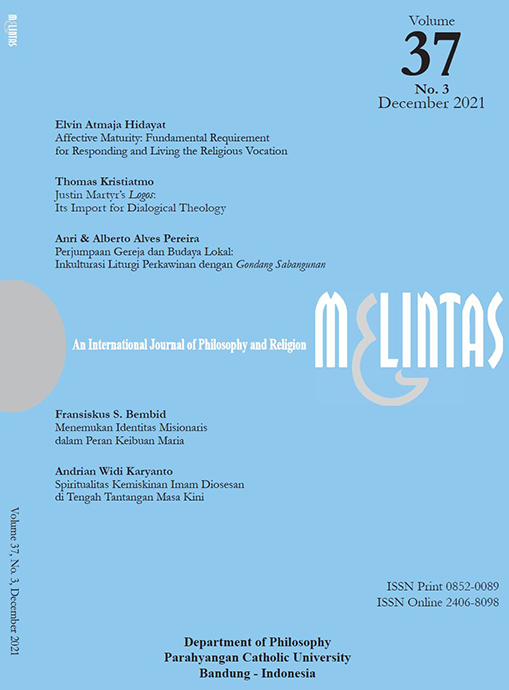Vol. 37 No. 3 (2021)

Meanings surface wherever human minds interact. Discussions and conversations help new meanings exist. Perhaps words and events that keep intermingling in everydayness will redefine our intention in seeking meanings. Do we create the latter, or do we continue to live by them? Someone seems to have lost the intention to live because it becomes hard to find life as meaningful. Knowing ourselves has been an adage that holds our mind sound and alive, but now it is even getting harder to be convinced that life is indeed meaningful. The border between meaningfulness and meaninglessness is blurring at the same time when the intention to live seems more and more dependent on the surfacing of meanings.
Knowing oneself goes back to the matter of identity. Instead of understood as articulating or verbalising about who we are, it probably is an interaction of how the other sees us in the various events and encounters. This edition of Melintas walks through the history of spirituality and identity in Christianity. The first article attempts to describe one of the aspects of human maturity, namely the “affective (emotional) maturity”, in relation to the choice of celibacy as a religious person. The significance of human affectivity lies in its correlation with other aspects of maturity, and affective maturity becomes a measuring tool as well as a fundamental requirement in the religious vocation. The second article sees Justin Martyr’s Logos and its import for a dialogical theology. Justin’s idea of logos spermatikos, developed to cross and connect the then seemingly unbridgeable systems—Greek philosophy and Christianity—proves to be valuable for contemporary theologians in doing theology of dialog today. The third article explores the inculturation of marriage liturgy with the music of gondang sabangunan Batak Toba, particularly in the Roman Catholic rite. This inculturation can be seen as an encounter of Christ, the Church, and the local culture, and the process might bring the faithful, especially the Batak Toba people, towards the experiences of repentance, holiness, and salvation. The fourth article finds the spiritual-theological meanings of the role of Mary in conceiving and giving birth to Jesus Christ in line with the identity of a missionary. It brings some ecclesiological implications, in face of the growing spiritual individualism and competition tendency in the life of faith. The fifth article reflects on the spirituality of poverty in the vocational life of diocesan priests and how it can strengthen their identity in face of the challenges in the world today. It sees a different perspective of this spirituality, even when its is not considered as a requirement in the formation process of a diocesan priest.
Reading through the articles might bring us to a realisation that meanings keep us alive. Spirituality can be considered a journey of seeking meanings that will shape our identity. Perhaps we will never finish this journey in life, but we are glad to know that we are not doing this alone, for identities interact.

